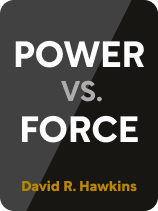

This article is an excerpt from the Shortform book guide to "Power vs. Force" by David R. Hawkins. Shortform has the world's best summaries and analyses of books you should be reading.
Like this article? Sign up for a free trial here.
What is universal consciousness? How do we access it? What happens when we do?
According to psychiatrist David Hawkins, consciousness is the ticket to knowledge and, ultimately, truth. He contends that, as well as having individual consciousness, we all have access to a universal consciousness that’s all-knowing.
Keep reading to understand what universal consciousness might be all about.
What Is Consciousness?
What is universal consciousness? Let’s start with consciousness in general before moving on to what it means on a grand scale. Hawkins defines “consciousness” as the ability to experience and understand yourself and your environment. Hawkins says this is possible because your brain is like a biological computer: It takes in data through your senses, then processes that data with electrical and chemical signals, resulting in what you perceive as thoughts and experiences.
(Shortform note: The brain-as-computer metaphor is an old one, and hotly debated. Some experts argue that viewing thought as just a series of inputs and outputs misses the point of consciousness: that you’re not just a machine responding to stimuli, but rather a living being who experiences the world around you. Although Hawkins uses the brain-as-computer metaphor, he arguably addresses these critiques of it by proposing a definition of consciousness that emphasizes experiencing the world.)
Hawkins also says that your mind has access to a universal consciousness shared by all people—the universe’s internet, to extend the computer metaphor. The idea of a communal pool of human knowledge is not a new one. Psychoanalyst Carl Jung called it the “collective unconscious”: a collection of facts and beliefs that all humans share, seemingly without ever learning them. Religions have called it God, and they seek to access its knowledge either by understanding God’s will (a common theme in Christianity, for example) or by uniting with God directly (as in Hinduism).
Whatever term you prefer, Hawkins says your connection to the universal consciousness allows you to instantly know whether something is true or false, so long as you can receive and understand the universal consciousness’s signals. In other words, it’s the ultimate source of truth, and with a strong enough connection to it, you become effectively omniscient.
(Shortform note: Another possible explanation for this apparent omniscience is intuition: when your mind subconsciously processes information and arrives at conclusions without the need for conscious, rational thought. Psychologists say that your senses take in significantly more information than you’re aware of because your brain filters out irrelevant details. However, by reviewing this filtered information and looking for patterns and connections, your subconscious generates conclusions quickly, and seemingly from nothing—you instantly know the truth, as Hawkins might put it.)
| What Is the Universal Consciousness? Hawkins alternately describes the universal consciousness as something internal—buried deep within each person’s psyche—and external; a single entity that we all connect to. This description departs from other interpretations that define consciousness as either internal or external. For instance, Jung’s collective unconscious is internal. Jung theorized that everyone has some inherited beliefs, fears, and instincts in common, but not that human minds are connected to a single external database of information. On the other hand, God (in any religion) is an external being or force. Combining these ideas, Hawkins is arguably saying that the consciousness itself is external, but there’s something hidden inside each of us that’s able to link with it. As we’ll see shortly, Hawkins defines the highest level of consciousness (enlightenment) as a state where we cease to think of ourselves as individual people, and instead, we become living extensions of the universal consciousness—in other words, enlightenment is when this internal/external binary ceases to exist. |
Measuring Human Consciousness
Since consciousness means both “awareness” and “understanding,” it logically follows that consciousness exists on a spectrum from no consciousness (having no awareness or understanding) to omniscience: total awareness and perfect knowledge of everything.
Hawkins developed a scale—what he calls the consciousness map—that measures the strength of your connection to the universal source of truth. According to Hawkins, the numbers indicate the energetic frequency of your consciousness (in other words, your consciousness level), with higher frequencies indicating more awareness and understanding than lower ones.
(Shortform note: Rhonda Byrne’s best-selling self-help book The Secret goes into more detail about the energetic frequencies of thoughts (or consciousness, as Hawkins puts it). However, while Hawkins describes energetic frequencies in terms of how high or low they are, Byrne describes them in terms of how positive or negative they are. According to Byrne, each of us is like a living transmission tower broadcasting thoughts into the universe. Each thought has a specific frequency—similar to a radio frequency—which the universe picks up and transmits back to us as life experiences. In short, positive thoughts attract positive experiences, while negative thoughts attract negative experiences.)

———End of Preview———
Like what you just read? Read the rest of the world's best book summary and analysis of David R. Hawkins's "Power vs. Force" at Shortform.
Here's what you'll find in our full Power vs. Force summary:
- A complete guide to human consciousness
- How to connect with universal consciousness and glean its insights
- How to use applied kinesiology to tell if something is true or false






